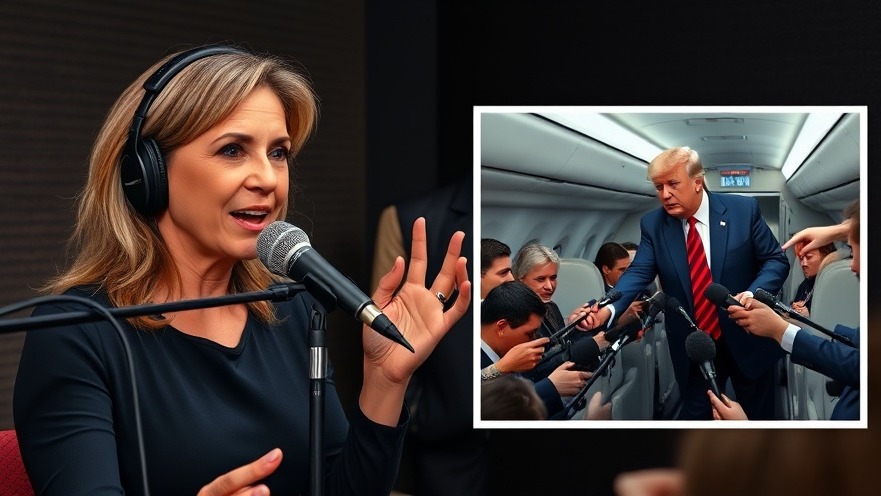
The Price of the Presidency: Sleep Deprivation and Its Consequences
The busy schedule of the President of the United States often comes with a heavy burden: sleep deprivation. As Kaitlan Collins revealed during a recent podcast appearance, staffers traveling with President Trump on Air Force One often face the daunting realization that restful sleep is a luxury they cannot afford. Collins emphasized that Trump’s need for sleep is astonishingly low, saying, "He does not sleep," a fact she discovered through conversations with staff members. This constant barrage of activity and conversation from the President leaves little room for downtime, particularly during important international trips where staffers might otherwise hope to catch up on sleep.
The Science Behind Sleep and Cognitive Function
With President Trump often claiming to survive on just three to four hours of sleep, experts are suggesting the potential cognitive implications of such a regimen. Research indicates that sleep deprivation can adversely affect memory, decision-making, and emotional regulation. Neurologist Chris Winter observed that chronic sleep deprivation may contribute to irritability and impulsiveness, traits sometimes exhibited by Trump. This concern is amplified considering Trump’s role as a decision-maker whose choices can directly impact national and international events.
Comparative Analysis: Leadership Dynamics and Sleep Patterns
One cannot overlook the historical context that surrounds presidential sleep habits. Leaders like President Trump have not been unique in their infamous sleep schedules. Former President Bill Clinton was also known to boast about his minimal sleep; however, studies suggest that older adults—including Trump, who at 79 needs even more rest—suffer greater cognitive repercussions from limited sleep. According to the National Institute on Aging, older adults typically require between seven and nine hours of nightly sleep to operate optimally.
Traveling with Trump: A Unique Challenge
Traveling with Trump presents unique challenges not only due to his sleep patterns but also because of his unpredictable schedule. Collins disclosed that staffers preparing for long trips, such as those to Southeast Asia, understand that sleeping on the flight is unlikely, as the president is notorious for engaging them in conversation at all hours. This experience can lead to exhaustion among staff, forcing a balancing act between their professional responsibilities and the toll it takes on their personal well-being.
Sleep Deprivation: An Issue for Leadership
The implications of Trump's chronic sleep deprivation extend beyond his travel team. The White House, and indeed the nation, may feel the effects of a leader running on fumes. Vice President JD Vance highlighted that Trump's late-night work ethic could lead to troubling decision-making during critical moments. Historically, leaders have had their sleep habits scrutinized, with modern studies correlating lack of sleep with erratic behavior, a concern that most evidently fits with the unpredictable nature of Trump’s statements and tweets in the early hours of the morning.
What This Means for Kansas City Residents and Local Businesses
For local residents and businesses in Kansas City, understanding the impacts of leadership on both a national and local scale is essential. Just as Trump's lack of sleep can have wide-ranging implications, leaders in any sphere who prioritize constant work over sufficient rest could potentially undermine their effectiveness. Kansas City businesses seeking success would do well to recognize the importance of a balanced work-life philosophy, fostering creativity and decision-making abilities among their teams.
Inspiring a Culture of Wellness
The conversation around sleep and work habits touches on critical themes for local organizations and their employees. By promoting wellness initiatives, encouraging breaks, and recognizing the need for adequate rest, businesses can cultivate a healthier work environment. Instead of modeling after the nature of high-pressure leadership styles that favor sleepless nights, Kansas City can choose to lead by example, creating a culture where well-rested employees can flourish.
In a world where productivity is often equated with working late, perhaps it is time for Kansas City and its leaders to let the evidence guide them towards prioritizing health and well-being over sleepless nights. Have a story to share or want to contact us for more details? Drop us an email at team@kansascitythrive.com
 Add Row
Add Row  Add
Add 




Write A Comment